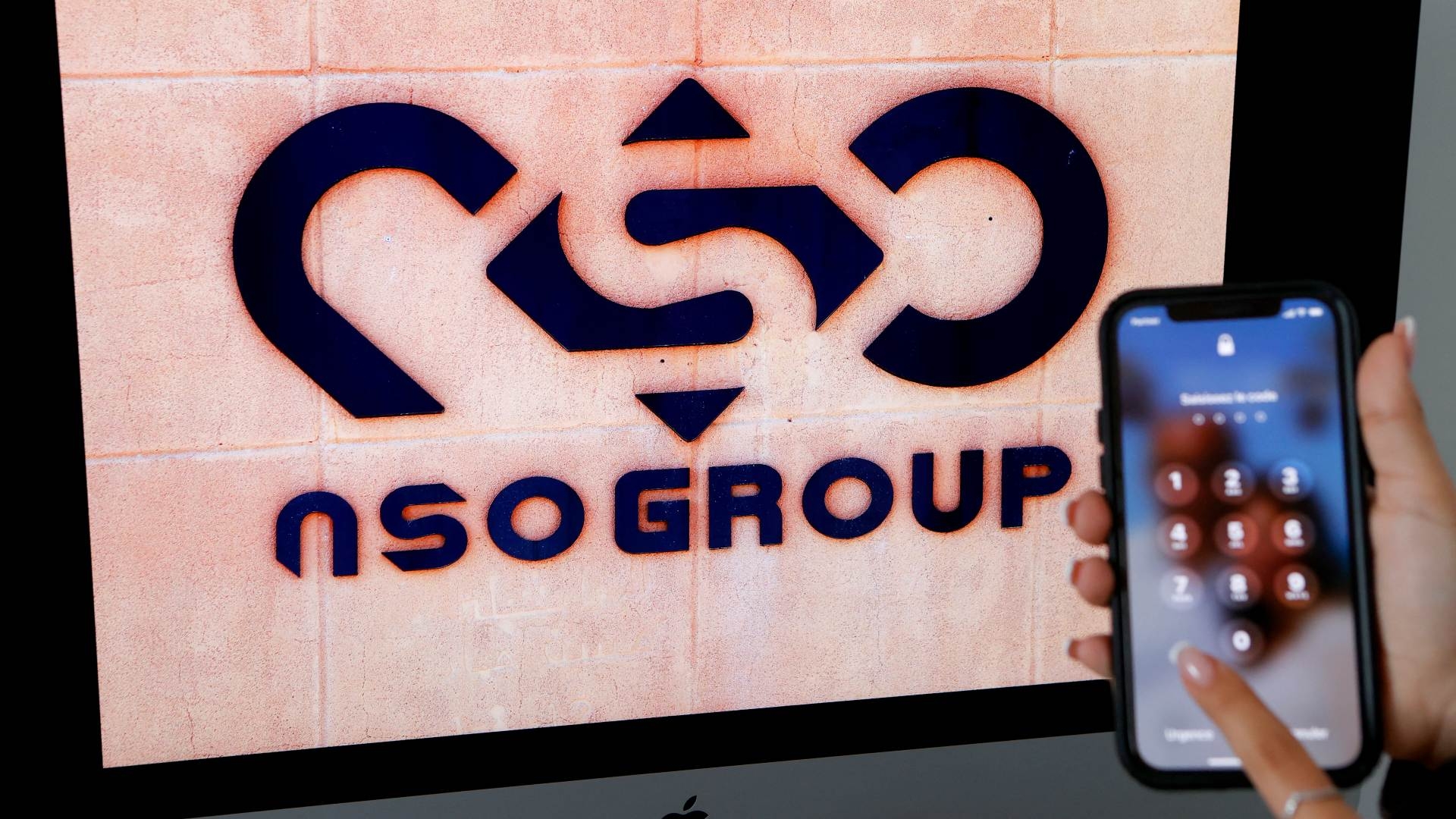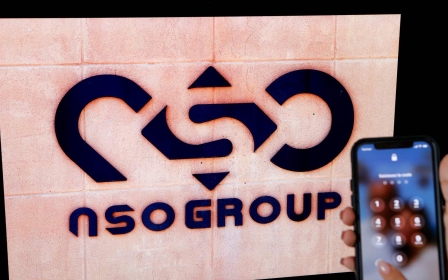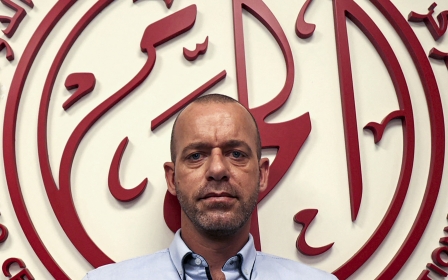Pegasus: US Supreme Court seeks Biden's input on lawsuit against Israel's NSO

The United States Supreme Court wants the Biden administration to weigh in on whether Israel's NSO Group has sovereign foreign immunity from civil litigation in the US to determine whether a lawsuit by WhatsApp against the spyware company can proceed.
In an order on Monday, Supreme Court justices asked the US solicitor general to file a brief in the case that would explain the federal government's views.
In April, NSO Group's lawyers turned to the nation's top court following a November 2021 decision by a US federal appeals court to dismiss its push to assert legal immunity from a lawsuit.
NSO argues that because the company's product is used by foreign governments and law enforcement agencies, the firm is protected from civil lawsuits on US soil.
WhatsApp - owned by Meta (formerly Facebook) - is suing NSO Group over the alleged targeting of its servers in California with malware to gain unauthorised access to approximately 1,400 mobile devices in violation of US state and federal law.
New MEE newsletter: Jerusalem Dispatch
Sign up to get the latest insights and analysis on Israel-Palestine, alongside Turkey Unpacked and other MEE newsletters
In its original legal complaint filed in 2019, WhatsApp accused the Israeli firm of breaching its terms of service and undermining the messaging platform's "reputation, public trust and goodwill" with hacking activities.
Last year, the Ninth Circuit Court of Appeals affirmed a lower court's decision to allow WhatsApp's lawsuit to proceed, stressing that NSO Group does not qualify for sovereign immunity, even if its clients are foreign government agencies.
"Whatever NSO's government customers do with its technology and services does not render NSO an 'agency or instrumentality of a foreign state,' as Congress has defined that term. Thus, NSO is not entitled to the protection of foreign sovereign immunity," Judge Danielle Forrest, a Trump appointee, wrote in the ruling.
The WhatsApp lawsuit is one of several legal actions that have been levelled against the spyware firm in the past several years.
US sanctions
The Israeli company sparked outrage from rights groups after a series of investigations in 2021, under the coordination of Forbidden Stories, showed how Pegasus, NSO Group's flagship product, was used by governments to spy on activists, journalists and political dissidents.
Governments such as Saudi Arabia, Morocco, Bahrain and the United Arab Emirates have been accused of using the spyware.
Last year, the Biden administration blacklisted NSO Group, adding it to the "Entity List" of companies considered to be engaged in activities contrary to US foreign policy and national security, after accusing it of enabling "transnational repression" with its spyware.
Following the decision, credit rating agency Moody's said the company was at risk of defaulting.
WhatsApp's lawyers cited the sanctions in a filing to the Supreme Court earlier this year, urging the justices to disregard the Israeli firm’s request for reviewing the lower court’s decision.
"The United States has determined that NSO’s spyware activities — the very type of activities for which NSO seeks immunity — are contrary to US national-security and foreign-policy interests, and has therefore added NSO to its Entity List restricting the export, reexport, and transfer of covered entities’ items," WhatsApp's lawyers wrote.
"Even if private entities were eligible for common-law foreign sovereign immunity (they are not), a company on the Entity List would have no plausible claim to such immunity."
NSO Group has regularly denied allegations of enabling human rights abuses, saying that its spyware, which is licenced by the Israeli government, is meant to track criminals and “terrorists”.
But numerous rights groups have accused the group of flouting its "human rights responsibilities", calling on the Israeli government to revoke the firm's permits.
Middle East Eye delivers independent and unrivalled coverage and analysis of the Middle East, North Africa and beyond. To learn more about republishing this content and the associated fees, please fill out this form. More about MEE can be found here.





